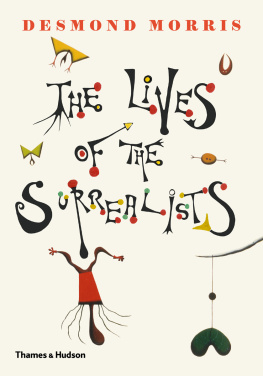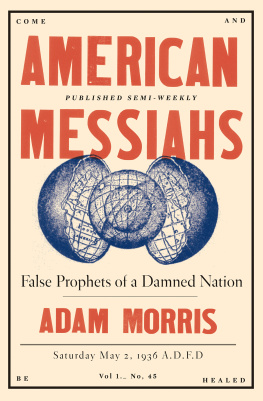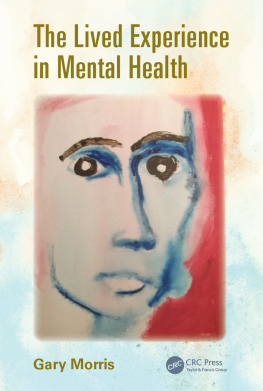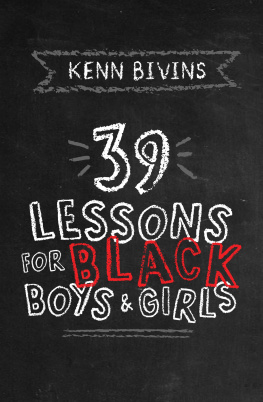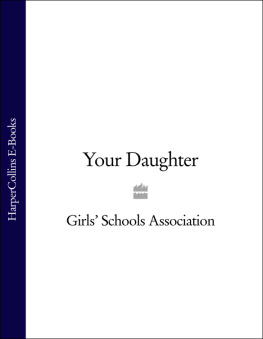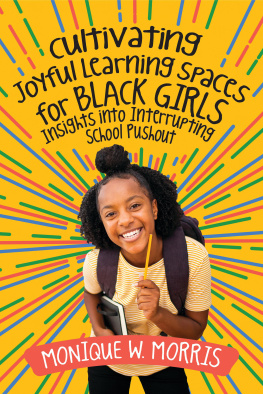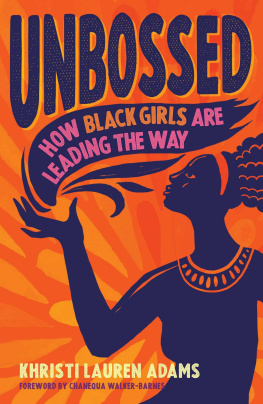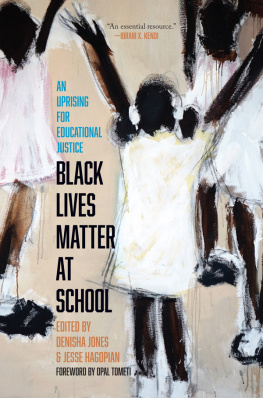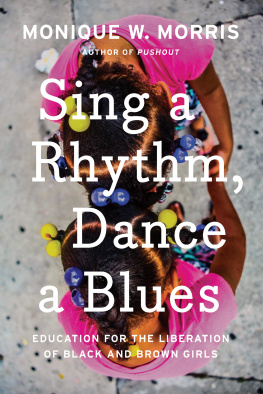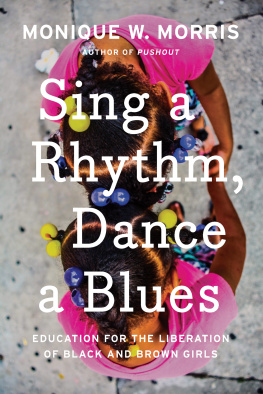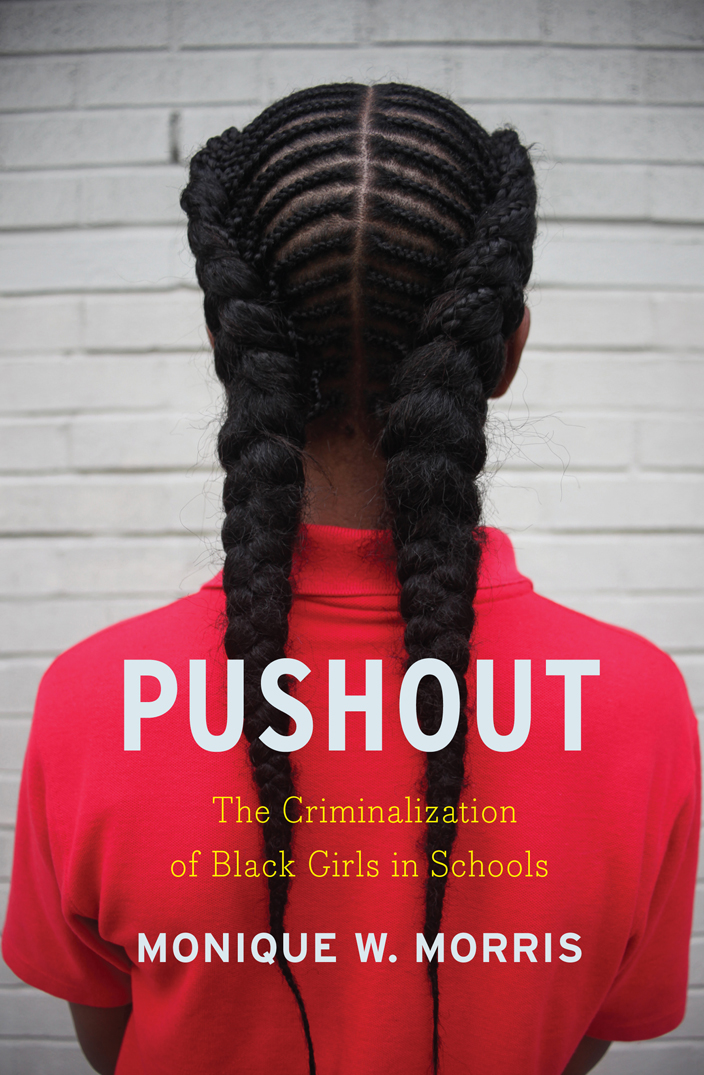PUSHOUT
Also by Monique W. Morris
Black Stats: African Americans by the Numbers in the Twenty-First Century
Too Beautiful for Words: A Novel

2016 by Monique W. Morris
All rights reserved.
No part of this book may be reproduced, in any form, without written permission from the publisher.
Requests for permission to reproduce selections from this book should be mailed to:
Permissions Department, The New Press, 120 Wall Street, 31st floor, New York, NY 10005.
Published in the United States by The New Press, New York, 2015
Distributed by Perseus Distribution
ISBN 978-1-62097-120-8 (e-book)
CIP data available.
The New Press publishes books that promote and enrich public discussion and understanding of the issues vital to our democracy and to a more equitable world. These books are made possible by the enthusiasm of our readers; the support of a committed group of donors, large and small; the collaboration of our many partners in the independent media and the not-for-profit sector; booksellers, who often hand-sell New Press books; librarians; and above all by our authors.
www.thenewpress.com
Composition by Westchester Publishing Services
This book was set in Garamond Premier Pro
10 9 8 7 6 5 4 3 2 1
For Black girls
Table of Contents
Guide
CONTENTS
C all my mama!
This was the cry of fourteen-year-old Dejerria Becton, who in the summer of 2015 was thrown to the ground as well as physically and verbally assaulted by Corporal Eric Casebolt after she refused to leave her friends at the mercy of this law enforcement officer in McKinney, Texas. A video, which later went viral, showed Casebolt pushing Dejerrias face into the ground as shea slight-framed, barefoot, bikini-clad teenager who presented no physical threat or dangerscreamed for someone to call her mother for help. The video showed Casebolt grinding his knee into her bare skin and restraining her by placing the full weight of his body onto hers.
The incident was violent and reeked of sexual assaultovertones that were later deemed inappropriate, out of control, and inconsistent with the police departments policies, training, and articulated practices.
Addressing these problematic narratives has proved difficult in the current social and political climate, one that embraces punitive responses to expressions of dissent and increases the surveillance of the homes where our families live, the communities where our children play, and the schools where our children are educated.
The result has been an increasing number of girls in contact with the criminal and juvenile justice systems. Since 1992, girls share of delinquency cases resulting in detention (the most common form of confinement for girls) has increased, often for charges such as prostitution, simple assault, or status offenses.
Status offenses refer to those that are only a violation because the person is underage, such as truancy, curfew violations, or running away from home.
One of the most persistent and salient traits among girls who have been labeled delinquent is that they have failed to establish a meaningful and sustainable connection with schools. This missing link is exacerbated by the increased reliance of public schools on exclusionary discipline, at present one of the most widely used measures to deal with problematic student behaviors. Indeed, nearly 48 percent of Black girls who are expelled nationwide do not have access to educational services.
The criminalization of Black girls is much more than a street phenomenon. It has extended into our schools, disrupting one of the most important protective factors in a girls life: her education.
In May 2013, Ashlynn Avery, a sixteen-year-old diabetic girl in Alabama, fell asleep while reading Huckleberry Finn during her in-school suspension. When she did not respond, the suspension supervisor allegedly threw a book at her and ordered her to leave the classroom. As she was leaving the room, a police officer allegedly slammed her face into a file cabinet and then arrested her.
Some of the most egregious applications of punitive school discipline in this country have criminalized Black girls as young as six or seven years old, who have been arrested for throwing tantrums in their school classrooms, yelling and screaming at a teacher, and being disruptive to the learning environment. Six-year-old Salecia Johnson was arrested in Georgia in 2012 for having a tantrum in her classroom.
These cases were so extreme that they managed to capture considerable public attentionmostly through social media. However, they were never pieced together to present a comprehensive, national portrait of how school responses to the disruptive behaviors of Black girls push them out and often render them vulnerable to further victimization and delinquency. It turns out that the incidents involving Ashlynn, Kiera, March, Pleajhia, Salecia, Michelle, and Desree were not isolated ones. Black girls from coast to coast tell stories of being criminalized and pushed out of schools.
For many Black girls, interactions between the justice system and schools often do not begin, or end, in school. The surveillance to which Black girls are subjected, and the punitive responses to either their (sometimes poor, sometimes typical) decision making or their reactions to perceived injustice have made contact with law enforcement a frequent occurrence. The implementation of zero-tolerance policies, as I will discuss throughout this book, has become the primary driver of an unscrupulous school-based reliance on law enforcement and school security guards. People who often know little to nothing about child or adolescent development, and who often lack the appropriate awareness and training for the school environments they patrol, are responding to behaviors that were previously managed by skilled teachers, counselors, principals, and other professionals. While there are plenty of numbers and statistics that paint a troubling picture, the harm done by this shift can hardly be quantified. Black girls are being criminalized in and by the very places that should help them thrive.
Historical Perspectives on the Importance of Educating Black Girls
Long before the Supreme Court handed down its decision in Brown v. Board of Education, Black women were clear about the liberative power of education. Under slavery, the education of people of African descent was illegal and considered a punishable offense under state slave codes. In this society, to read challenged the oppressive, controlling logic of slavery and the presupposed inferiority of Black people. For many enslaved Black women, learning to read represented a reclamation of human dignity and provided an opportunity to ground their challenges to the institution in scholarship, literature, and biblical scripture. Many a Black womans commitment to education was so strong that she risked incarceration or other penalties just to attain it.
States with slave codes that delineated the status of enslaved persons and the rights of their owners included Georgia, South Carolina, Alabama, Mary land, Louisiana, Texas, and parts of Missouri, among others.
Why take the risk? Because Black women understood the reward. Having an education would make it much harder for Black people to be relegated to servitude and poverty. Those Black women who became educators and generally learned people were able to renegotiate power relationships that had previously held them in bondage, and recast themselves as directors of their own destinies. Education provided an alternativeand it was tangible. It was tangible in 1793, when Catherine Ferguson, a formerly enslaved young woman, committed her life to corralling poor and neglected Black and White children for religious instruction on Sunday.


